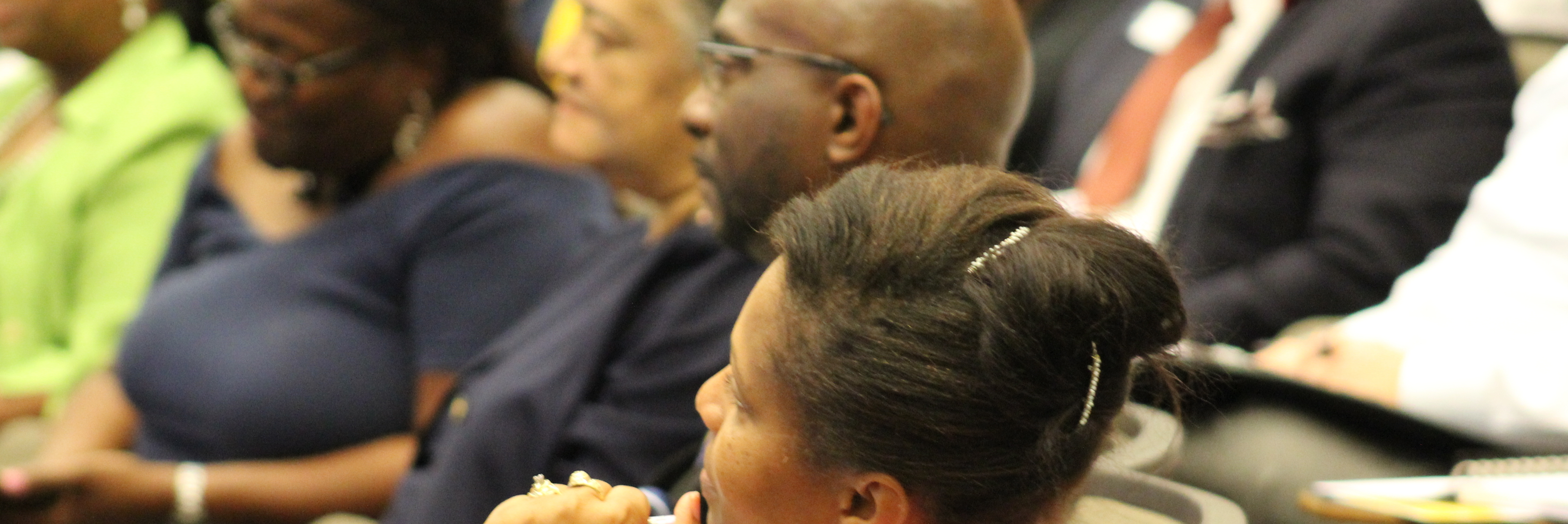LECTURE SERIES
Building on Resilience Lecture Series
The Building on Resilience Lecture Series highlights the research of authors shared in the edited volume Building on Resilience, a text noted as being “a much needed and important resource on how to advance the success of Black males in education” as well as scholars whose research is synergistic with the mission of the MACH-III Center. Building on Resilience uniquely examines the trajectory of Black males through the educational pipeline from preschool through college. In doing so, the text not only contributes significantly to the scholarship on the experiences of this population, but also bridges the gap between theory and practice to provide frameworks and models that will improve these young men’s educational outcomes. One lecture will be held each Fall and Spring Semester for a total of two lectures per year.
MACH-III Center MasterClass
The purpose of the MACH-III Center MasterClass is to expose doctoral students at PVAMU as well as graduate students who attend many of the surrounding schools, particularly Minority Serving Institutions (MSIs), to key national scholars and their research. This series is structured to allow graduate students and speakers to engage in dialogue about research, especially as it relates to the dissertation and dissertation process. The presentations include a classroom lecture/discussion of the scholar’s dissertation research and /or contemporary scholarship. Two MasterClasses will be held each Fall and Spring Semester for a total of four per year.
EDUCATIONAL SUMMITS
Educational Summits are developed to provide an opportunity for local, state and national leaders to discuss the most critical extant issues related to P-20 education in general and the outcomes for the student populations they serve in particular.
PROFESSIONAL DEVELOPMENT
The MACH-III Center Team can conduct professional development programs that provide opportunities for educators, administrators, faculty and staff to gain and improve the knowledge and skills important to their positions and job performance including topics (e.g. mentoring, culturally responsive pedagogy, educating diverse students, research and writing bootcamps and working with gifted students).
PROGRAM EVALUATIONS
The MACH-III Center Research Team can assist institutions and programs across the country with improving productivity, enhancing effectiveness, and increasing efficiency through evaluations that can be both formative and summative. Our evaluations are comprehensive, gathering information using qualitative and quantitative data, and can review evidence of implementation – what was done, as well as evidence of impact – what difference did it make. Our studies result in essential, well-documented data that is needed to make important decisions.
RESEARCH AND WRITING BOOTCAMPS
One of the most critical topics that faculty must address in academe is how to frame and operationalize a research agenda. From developing a researchable topic to revising and resubmitting a peer-reviewed publication, understanding the complexities of navigating the research terrain is key. The Framing and Maintaining a Research Agenda Institute will focus on the steps necessary to frame and maintain an active research agenda.
Participants will be involved in both theoretical and practical applications in an effort to promote their success. Specific objectives of the Institute include:
- To understand the importance of a research agenda.
- To understand the publication process.
- To provide participants with tools to move their research agenda forward.
- To understand the importance of mentoring (establishing networks)
Topics that will be addressed include:
- Framing and Maintaining a Research Agenda
- Writing for Publication
- Successful Mentoring Approaches
- Designing the Impactful Syllabus
- Classroom Assessment Techniques (CATs)
- Preparing the Tenure and Promotion Dossier
- Skillsets to be Successful in Academia
- Time Management and Work/Life Harmony
- Additional topics generated by our assembled participants.

